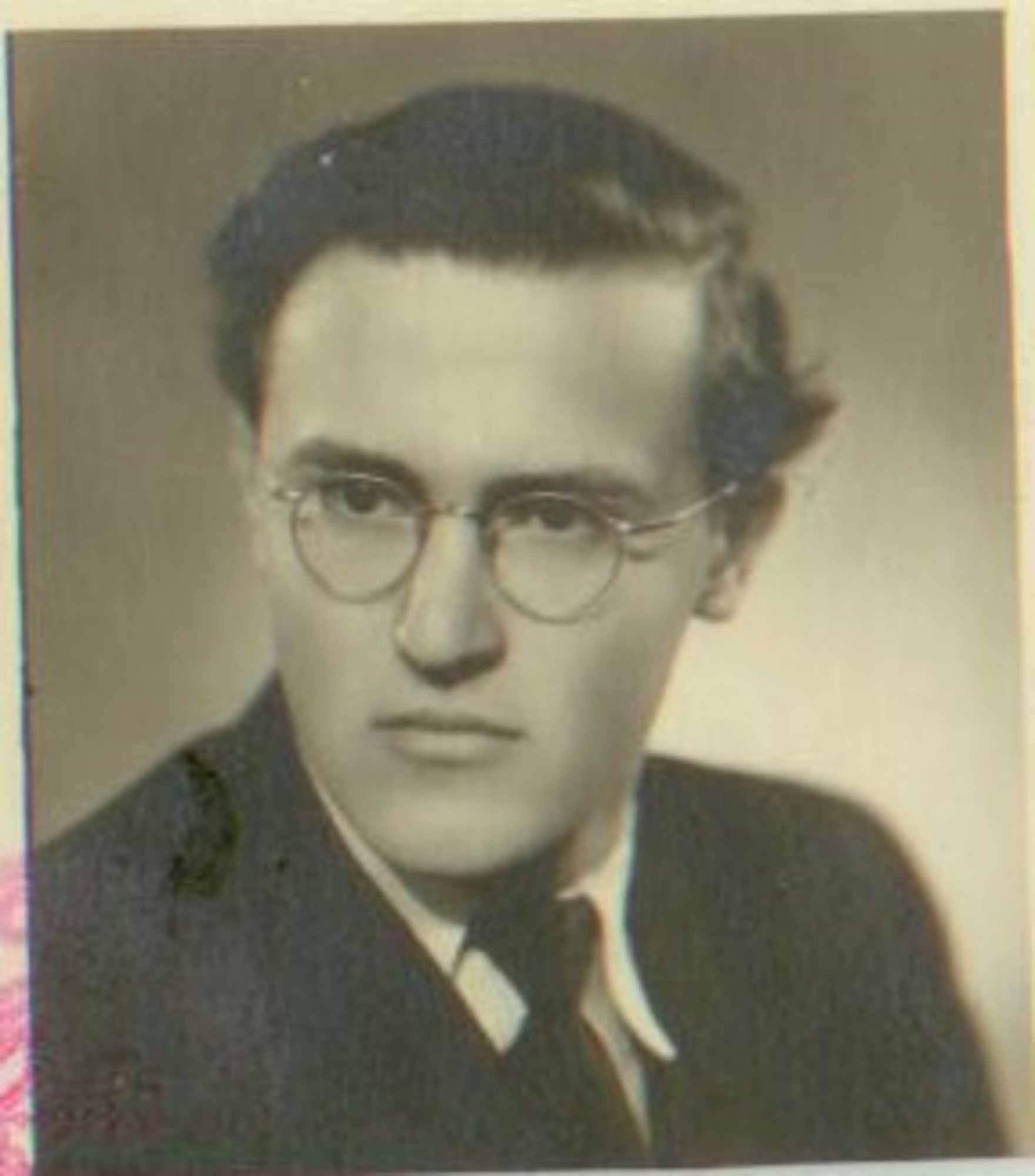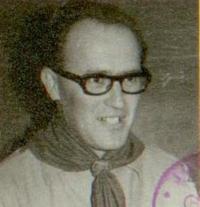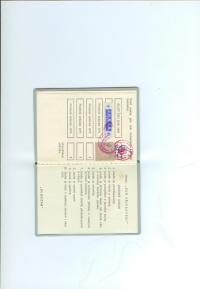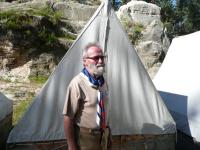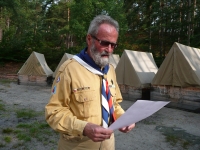The restoration of Scouting in 1968 was a lot more joyful and had greater support from the society than the restoration in 1989.
Milan Skácel - Kobra was born October 23, 1934 in Žďánice near Hodonín. After WWII he joined a Boy Scout troop (the patrol Lišky - Foxes) in Strážnice near Veselí nad Moravou. He was one of the three sons of the local higher elementary school teacher and principal. It was his older brother, who had been a Boy Scout before the war, who introduced Milan to Scouting. In 1946 and 1947 he participated in camps in the Moon Valley in the Carpathian Mountains. The ban on Scouting and the political transformation after 1948 did not hit them as severely as the Scouts in Prague; he and his friends kept meeting in pubs and tramping together. He studied the military academy in Nové Mesto nad Váhom and then worked as a professional soldier for nine years in the communications regiment in Pardubice. He married and during the restoration of Scouting in 1968 he and his wife moved from Pardubice to Hradec Králové, where he joined the 18th troop. After two years of activity and two camps in Muchov (under the village of Nebeská Rybná on the river Zdobnice in Eagle Mountains) their troop became disbanded. Milan Skácel was dismissed from the party and from his job in 1974 due to illegal operation of a radio station. In 1989, as an Oldscout and official, he took part in the third restoration of Scouting, which in his eyes was not as joyful as the one in 1968. He and his wife have worked for the Czech Scouting movement on the international level.
